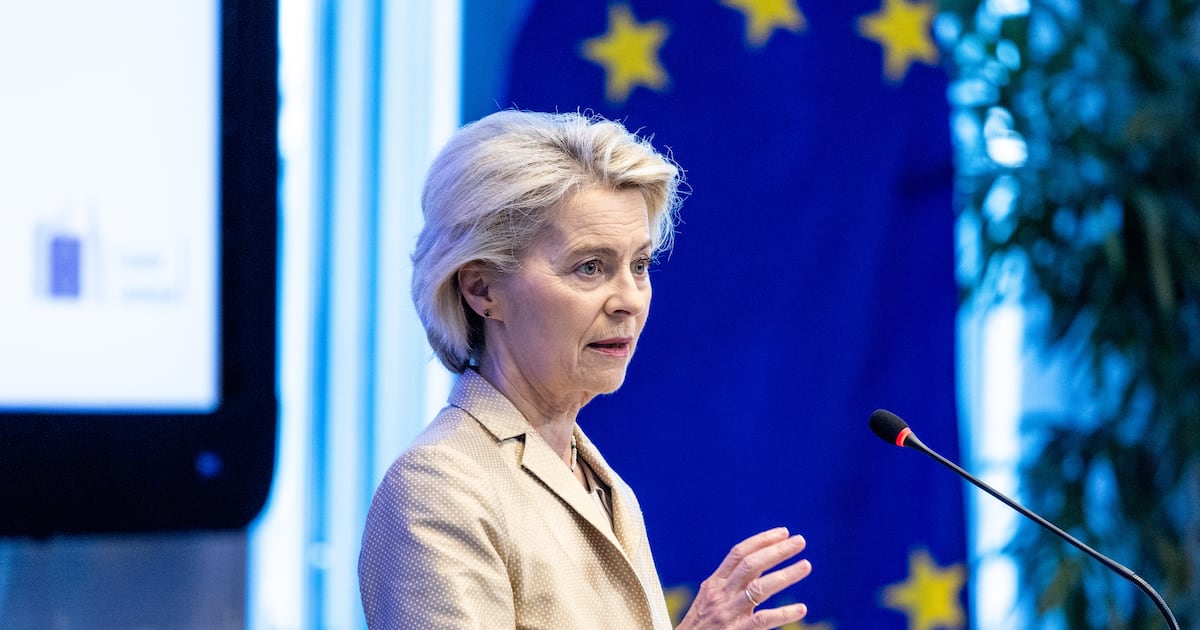Trade from Israel would no longer be given preferential treatment coming into the European Union, under a proposal tabled by the European Commission.
The move would represent a major economic and diplomatic blow for Israel, affecting billions of euros worth of trade. The proposal has been made in response to its military campaign in Gaza.
If approved, it would suspend the central plank of a decades-old free-trade deal that removed tariffs on imports of goods between Europe and Israel.
However, suspension of the agreement requires the backing of a weighted majority of EU states, meaning Germany or Italy would first need to lift their opposition to the union sanctioning Israel.
The move would represent the first serious sanction the EU has agreed to level on Israel since the start of its devastating invasion of Gaza. It would see tariffs reimposed on key Israeli exports, including fruit such as dates and avocados, that had been dropped as part of the trade deal.
The proposal was first flagged by the president of the European Commission, Ursula von der Leyen, under growing pressure to hold Israel to account for its continued bombardment of the Palestinian enclave.
A group of EU states – Germany, Italy, Hungary, Austria and Czech Republic – have consistently opposed the bloc imposing any penalties on Israel and watered down joint statements condemning the war in Gaza.
Pro-Palestine campaigners and human rights groups have pressed Brussels to use its leverage as Israel’s biggest trading partner to restrain the military campaign in Gaza. Israel exported about €16 billion in goods to Europe last year, which accounted for nearly a third of its global trade.
A free-trade deal in place since 2000 scrapped tariffs on imports between Israel and the EU. Commission officials have estimated that suspending the arrangement would result in annual import duties of €227 million being charged on Israeli exports.
At least 64,900 Palestinians have been killed by Israeli forces during almost two years of war, according to Gazan health authorities. A global hunger monitor has said famine is taking place in parts of Gaza. Israel’s invasion was launched in response to attacks by Hamas militants on southern Israel on October 7th, 2023 which killed 1,200 people, according to Israeli tallies.
Diplomats from the EU’s 27 states will debate the plan to suspend Israel’s preferential access to the European market. There will likely be a big focus on the positions of the governments in Berlin and Rome.
A much more limited proposal from the commission to suspend Israel’s access to Horizon funding for start-up companies failed to win enough support earlier this year.
Israel will be expected to fiercely lobby national capitals to block the proposed suspension of the trade deal.
In a September 16th letter, Israeli foreign minister Gideon Saar accused Ms von der Leyen of trying to harm Israel while it was in an “existential” war with Hamas.
The letter from Mr Saar said the EU’s proposal would only “empower” the militant group which controls Gaza and “jeopardise” efforts to end the war.
Speaking in Brussels on Wednesday, Kaja Kallas, the EU’s foreign affairs chief, said the commission did not want to “punish” Israel. The plan was to pressure it to improve the humanitarian situation in Gaza, she said.
Tánaiste and Minister for Foreign Affairs Simon Harris described the shift by the commission as a “critical turning point”. The move was also strongly welcomed by Taoiseach Micheál Martin. “I will be calling on all member states to support these measures when they are voted on,” he said.
The commission also proposed putting sanctions, including travel bans, on individuals on both sides of the conflict.
The EU executive wants to sanction two extremist Israeli ministers, Itamar Ben-Gvir and Bezalel Smotrich, as well as several violent Israeli settlers occupying Palestinian territory and an additional 10 senior Hamas figures.
Those sanctions require unanimous approval by all 27 EU states. Measures against Mr Smotrich and Mr Ben-Gvir are unlikely to be approved, due to trenchant opposition from Hungary and others.
A United Nations commission of inquiry this week concluded that Israel had committed genocide in Gaza, a charge Israel has rejected.

